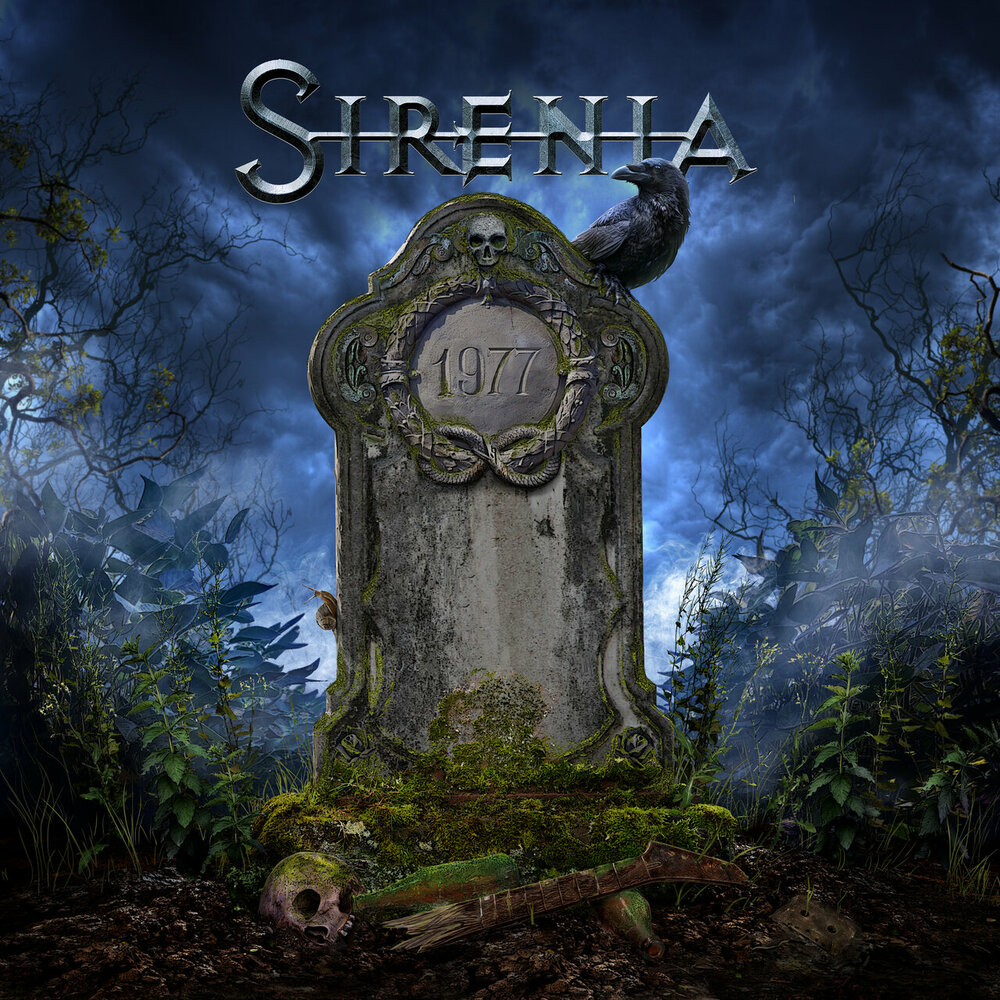 |
Country: Norway
Style: Symphonic Metal
Rating: 7/10
Release Date: 26 May 2023
Sites: Bandcamp | Facebook | Instagram | Metal Archives | Official Website | Wikipedia | YouTube
Another band whose most recent album came out a couple of years ago, Sirenia's highlighted that their sound had changed considerably since their early years. This follows suit, a firm underline to their current musical approach. What that means for old school fans is that there isn't as much of a gothic aspect to their sound as there used to be, though it isn't gone entirely, and the vocals of founder Morten Veland are mostly gone, showing up on the odd song here and there to serve as a contrast and to pique our memories.
Mostly, this is symphonic metal to showcase the voice of Emmanuelle Zoldan, who sounds excellent but, as with the previous album, doesn't attempt to show off. The songwriting is pretty consistent, these songs generally kicking in with electronica that's characterful and highly versatile but often more in a pop vein than rock, let alone metal. Then the guitars add crunch with a wistful eye firmly on the gothic metal they used to play, as if they're nostalgic but not so much to truly go back there. The beat is up tempo and lively rather than fast, but it speeds up at points for emphasis. And then Zoldan's vocals arrive to take the song where she will.
It's the electronica and the beat that fundamentally drives this album, because Veland trawled in an eighties pop aesthetic to flavour the band's sound that's highlighted by his very unusual choice of cover to close the album. It's Twist in My Sobriety, Tanita Tikaram's biggest hit from 1988, which features a moodiness to her vocal but a perkiness to the beat. That translates well here into a pop metal song, with the moodiness in the gothic crunch and the perkiness still there in the beat. And, really, while this cover closes the album, it could have started it as a mission statement. Instead it wraps up proceedings as a nod to the degree to which everything could have gone.
It's easy to see where this could have gone horribly wrong. Pop metal is a dangerous territory, the two approaches very different and needing to contrast each other well to work in collaboration. It may be the electronic decoration that saves it, because Veland infuses it with enough invention to keep the songs from fading into pop mediocrity. Without it, they might seem enough of a likeness to lose us. With it, the songs are able to delineate themselves and shine on their own.
If you're worried by this pop metal approach, I'd suggest that you listen to Twist in My Sobriety, to see where Veland is coming from this time out, then check out some highlights to see if this works for you. I like the opener Deadlight mostly for its subtle touches, so Wintry Heart may be a better choice as a sample; it has a real bounce to it and a neatly catchy melody. Nomadic is a strong track right after it, kicking off with violin and Jew's harp but then launching into a tastefully aggressive riff. Timeless Desolation features the most elegant melodies, but A Thousand Scars has grandeur to it, with Zoldan getting operatic in its second half, and that returns on Delirium, which is clearly the heaviest song here.
And talking of heavy, while this is still symphonic metal, it's so driven by a pop mindset that it gets easy to forget. Nomadic has an edge but Fading to the Deepest Black is the first song that believes that it's truly metal. Michael Brush generates a much faster beat early on and the guitars go past their standard crunch mode, only to recede for the more elegant verses, even if the keyboards are a constant reminder that this is a darker song. Veland steps up to the mike on this one but keeps it clean for now. He returns and gets harsh for the only time on Delirium, with Zoldan adding serious weight to her voice during her operatic sections.
I like this, even though the proliferation of pop melodies and thinking ought to put me off. There's a song here, The Setting Darkness, that kicks off just like Abba and never really leaves that even as the crunch hits. I don't like it as much as Riddles, Ruins & Revelations, which got an 8/10 from me in 2021, but I do like it. It feels odd to be giving it a 7/10 right after doing the same on Joel Hoekstra's 13, because I like this a heck of a lot more, but that speaks only to how this one connects with me a lot more effectively, not to any difference in quality. I wonder how you'll compare them.


















